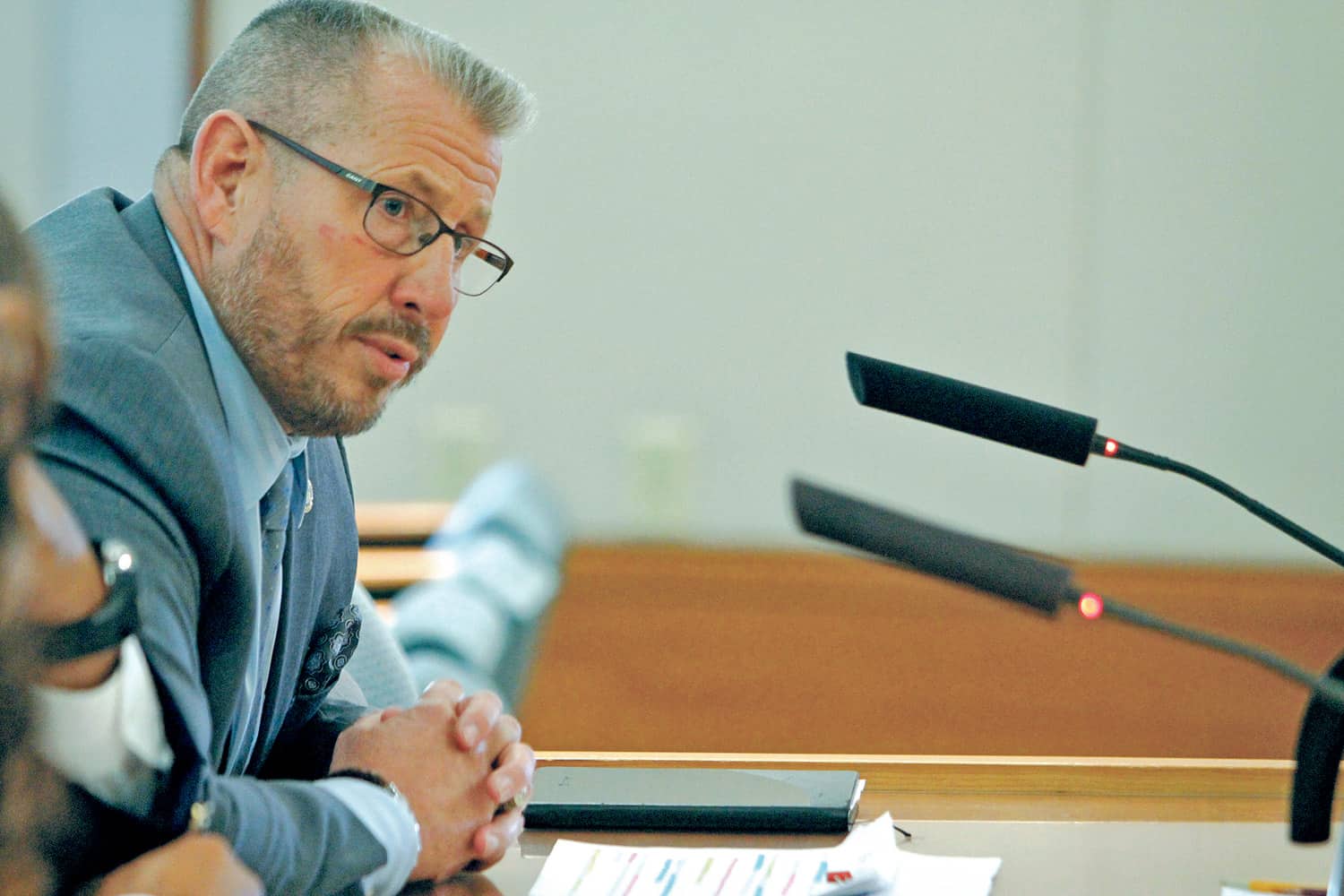As lawmakers head into a special legislative session aimed at addressing a budget deficit in the hundreds of millions of dollars, state Corrections Department officials told the Legislative Finance Committee on Thursday they will be hard-pressed to make it through the current fiscal year without more money.
Alex Sanchez, the department’s deputy secretary of administrative support, told members of the committee that the department anticipates it could end fiscal year 2017, which began in July, $17 million in the hole. And that doesn’t account for the fact that Gov. Susana Martinez has asked each department to cut 5 percent from its general fund spending for the current fiscal year.
Sanchez said the Corrections Department could help shore up that shortfall with about $7 million in supplemental funds it received from the Legislature last year for hepatitis C treatments and to address an increase in inmates, but at a minimum, she predicted, the department will need $10 million more to finish out the fiscal year.
As for next year, Sanchez said the department has identified about $11 million in cuts and cost savings.
But even when those are considered, she said, the department would still need about $4.3 million more in fiscal year 2018 than it received this year to address a massive job vacancy rate and to hold probation violators in jail while their cases are adjudicated.
She said the department had cut “to the bone” in some areas this year to find savings for next year.
Some state departments — Children, Youth and Families, for example — have been exempted from making the 5 percent cut. But Corrections Secretary Gregg Marcantel was vague when asked if his department was required to follow the order.
The executive branch had shown “some favor” to agencies with a public safety mission, he said, “but I don’t know if that qualifies me as being exempted.”
Even the state budget director, Anthony Forte, couldn’t answer legislators’ questions about which agencies will be held to the directive, saying decisions are still being made.
Martinez’s office didn’t respond to an email seeking comment.
Members of the Legislative Finance Committee bemoaned the state’s declining revenues and acknowledged that they were wary of underfunding the Corrections Department — and possibly facing another riot like the one in 1980 in which 33 prisoners lost their lives.
State Sen. John Arthur Smith, D-Deming, asked Marcantel if he remembered telling lawmakers last year that the department was at the “front door” of seeing a repeat of the 1980 riot. Marcantel said he did.
“We’re not yet out of that hole,” Marcantel added, saying the department is now better equipped to handle potential unrest in the prison system — which has about 7,000 inmates statewide — than it was in the ’80s. Corrections officers are better trained, he said, and there are better policies in place for sorting the inmates.
But, Marcantel said, risks of escapes, riots and other problems are elevated by a persistent job vacancy rate of about 22 percent.
Sen. George Muñoz, D-Gallup, tried to pinpoint the amount of funding Marcantel feels is needed to ensure public safety will not be jeopardized.
“At what point is enough, enough?” Muñoz asked.
“If we hold you out of a cut right now … I don’t want you in front of the TV camera saying, ‘The Legislature didn’t fund us, therefore we had a riot.’ ”
Marcantel said he doesn’t have a certain dollar figure. “We are in the process of doing our best to be a part of the solution and not jeopardize public safety,” he said.
Muñoz said he wants a number.
Corrections officials said almost $3 million of the $332.4 million budget the department needs for fiscal year 2018 — up from $327.7 million in fiscal year 2017 — is needed to address a disparity in wages. When money allocated for corrections officer vacancies last year was paid to new recruits, veteran officers’ pay was left at subpar levels.
Marcantel bristled when Rep. Luciano “Lucky” Varela, D-Santa Fe, raised the issue of morale problems at the department. Legislators had to acknowledge their role in the “multifaceted issue,” Marcantel said.
After the hearing, he said legislators were on board last year with a salary plan the department had developed to bring corrections officers’ pay up to more competitive rates, but in order to be effective, he said, the plan needs reoccurring allocations.
Varela said in an interview after the hearing that part of the department’s morale problem, as he understands it, is because members of the rank and file believe some money the Legislature gave to the department to increase salaries went to high-paid administrators, like Sanchez, and the creation of a $103,000–a-year chief of staff position filled by Mark Myers.
Martinez is the only person responsible for evaluating whether top administrators like Sanchez are effective, Varela said. But given that unionized corrections employees are currently taking a no confidence vote on Marcantel, he said, “I’m wondering if [Marcantel] is going to be there for the duration.”
Varela expressed frustration that Martinez is pushing to reinstate the death penalty and enhance a “three strikes” law during the upcoming special session, which he says will only “divert” lawmakers from focusing on balancing the budget.
Contact Phaedra Haywood at 505-986-3068 or phaywood@sfnewmexican.com. Follow her on Twitter @phaedraann.


